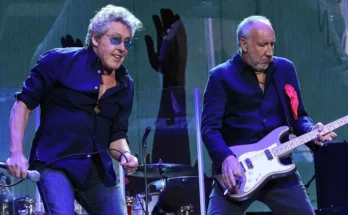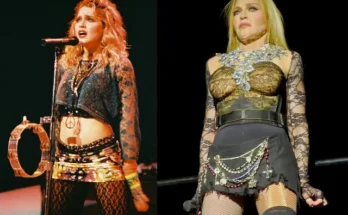VATICAN CITY — In a stirring and emotionally charged address from St. Peter’s Basilica, Pope Leo XIV has made a powerful appeal for peace, calling for an immediate end to what he described as the “tragedy of war” unfolding across the globe — with particular focus on the escalating violence in the Middle East, especially Iran.
Speaking during his Sunday Angelus prayer, the newly elected Pontiff—now just over two months into his papacy—broke from his prepared remarks to address the rapidly deteriorating humanitarian crisis in the region. His voice trembling with urgency, Pope Leo warned that humanity was “teetering on the brink of disaster,” and implored global leaders to “choose dialogue over destruction.”
“News continues to arrive from the Middle East, especially from Iran, of suffering, death, and unbearable devastation,” the Pope said, addressing tens of thousands of faithful gathered in St. Peter’s Square and millions more watching around the world.
“How many more lives must be lost before hearts are moved to peace? War is not a solution — it is a wound to our shared humanity.”
A Papal Plea in Troubled Times
The Pope’s comments come amid a dramatic surge in violence across the Middle East. In recent weeks, Iran has been gripped by a complex and deadly wave of internal unrest and regional military conflict. Fighting has intensified along Iran’s western and northern borders, following airstrikes and missile exchanges involving multiple regional powers, including Israel, Turkey, and the United States. Civilian casualties are mounting, and international observers have warned of a rapidly growing refugee crisis.
With refugee flows pouring into Iraq, Armenia, and the Persian Gulf states, and Tehran’s infrastructure badly damaged, humanitarian agencies say the situation is spiraling into catastrophe.
“What we are witnessing is not just a military confrontation, but the unraveling of an entire society,” said Caritas Internationalis, a Catholic relief organization operating in the region. “The loss of electricity, clean water, and safe passage is endangering millions.”
Against this backdrop, Pope Leo XIV has emerged as a moral voice of global urgency, reinforcing the Vatican’s long-standing role as a neutral peacemaker in times of war.
A Vision of Peace Amid the Storm
Pope Leo, formerly Cardinal Robert Francis Prevost, has consistently emphasized dialogue, reconciliation, and humanitarian outreach as the defining pillars of his pontificate. His address on Sunday marked the strongest and most direct condemnation yet of the ongoing wars — not only in the Middle East, but also in Ukraine, the Horn of Africa, and the Sahel region.
“In every bullet, there is a broken promise,” the Pope said, gesturing solemnly toward a group of children attending the Mass with their parents. “Every bomb dropped is a denial of hope. I ask those in power: do not betray the innocent any longer.”
He also called for an immediate ceasefire, and urged the international community — including the United Nations, NATO, and regional leaders — to come together for emergency talks under the banner of peace and humanitarian protection.
The Vatican’s Role in Crisis Mediation
Behind the scenes, Vatican diplomats are said to be working urgently to open backchannels with Tehran, Jerusalem, Baghdad, and Washington in the hopes of brokering a humanitarian corridor for civilians trapped in contested zones.
The Holy See Press Office confirmed that the Pope has personally reached out to Ayatollah Khamenei in Iran and Israeli President Isaac Herzog, appealing for “mutual restraint and the protection of noncombatants.”
The Vatican also confirmed ongoing coordination with Catholic and Muslim faith leaders in the region, including prominent Shi’a clerics in Najaf and Qom, as part of an interfaith initiative to de-escalate religious tensions that have been exploited during the conflict.
A Global Reaction to a Global Crisis
International response to the Pope’s appeal has been swift. UN Secretary-General António Guterres welcomed the message, calling it “a vital moral intervention at a time of immense global instability.” Several European leaders, including French President Émilie Laurent and German Chancellor Lukas Schneider, echoed the Pope’s call for an immediate ceasefire and humanitarian access.
In the United States, where Pope Leo was born and began his clerical career, reactions were mixed. President Donald Trump, who has recently increased military pressure on Iran, said through a spokesperson that he “respects the Pope’s spiritual message” but insisted that “American interests and regional security must come first.”
On social media, the hashtag #PrayForIran began trending worldwide following the Pope’s address, with millions sharing prayers, photos, and calls for nonviolence.
A Church Confronting the World’s Wounds
This latest appeal deepens Pope Leo XIV’s growing reputation as a moral unifier, deeply inspired by his missionary past in Peru, and his commitment to advocating for the world’s poor and displaced. His words resonate with many Catholics and non-Catholics alike who see in him a continuation of Pope Francis’s legacy — one of compassion, justice, and global conscience.
“In these moments of anguish, the Church must not be silent,” the Pope said. “We must be the hands that lift the wounded, the voice that speaks for the forgotten, and the heart that beats for peace.”
As war drums grow louder, Pope Leo XIV’s voice stands in stark contrast: not one of politics or military power, but of compassion, reminding the world of the sacredness of human life, and the unbearable cost of ignoring it.
What Comes Next?
The Holy See is expected to convene an emergency interfaith summit in early August, with the aim of bringing religious leaders from across the Islamic world, Christianity, Judaism, and other traditions into dialogue.
In the meantime, Pope Leo has called for a global day of prayer and fasting for peace, to be held on Sunday, July 27, inviting “all people of goodwill, regardless of religion, to unite in silence, in hope, and in resistance to the madness of war.”
Conclusion: A Light in the Darkness
As the Middle East sinks deeper into violence, and the world grapples with complex crises of leadership, identity, and division, Pope Leo XIV has offered something many yearn for: moral clarity.
His message is simple, yet profound:
“There is no victory in blood. Only loss. Only grief. Let us not add to the sorrow of this world.”
And in a time when so many voices call for war, one voice — from the heart of Rome — dares to call for peace.
Frances Mao is a Vatican correspondent covering global faith, diplomacy, and conflict for the BBC.



